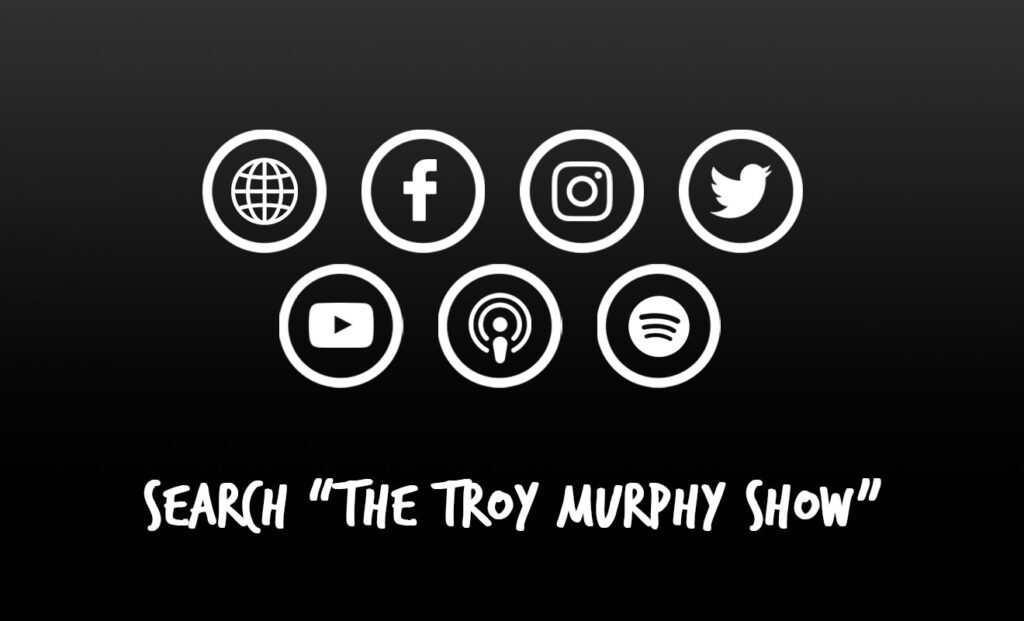
INTERVIEWS
What the latest RBA Interest Means For Shire Home Owners and Renters

TRANSCRIPT
Troy Murphy:
Thank you so much for tuning in as we do serious stuff at the back of the Troy Murphy show addressing what happened on Tuesday. And now I’m not talking about the Melbourne Cup, I’m talking about the latest interest rate rise from the RBA. This is serious stuff as cost of living increases, paying off your mortgage, and if you are a renter, your rent is about to get just that little bit more difficult ahead of Christmas. And because this is a serious topic, and as always here on the Troy Murphy Show, it’s our mission to inform and educate and to get people fast, smarter than I to come and help us with that mission. I’m joined now on the phone to chat the Reserve Bank of Australia’s Tuesday, announcement by Natasha Inez, the spokesperson at Compare the Market to guide us through what happened this week. Natasha, thank you so much for making the time to join us today.
Natasha Innes:
Hey Troy. Thank you for having us on.
Troy Murphy:
You are more than welcome. Now, Natasha, what’s going on? Can you tell us exactly what happened on Tuesday while the nation was watching the race that stopped us all. The RBA, the Reserve Bank of Australia raised interest rates.
Natasha Innes:
Yeah, there weren’t many winners on Melbourne Cup Day after the board decided to raise the cash rate by 25 basis points. So that’s the 13th cash rate rise we’ve had since May last year.
Troy Murphy:
And what are some of the reasons why the RBA lifted the cash rates by another 25 basis points?
Natasha Innes:
So according to the RBAs latest announcement, inflation in Australia has passed its peak, but it’s still too high and it’s proving more persistent than expected a few months ago. So the latest reading on its CPI inflation indicates that while goods price inflation has eased, the prices of many services are continuing to rise briskly. So in a nutshell, it’s taking longer than anticipated to bring down inflation to that target range of two to 3%.
Troy Murphy:
So where exactly are we we now with interest rates? Where does it sit? Why are the RBA so concerned?
Natasha Innes:
Our core inflation is worryingly high than our other major trading partners, which is coming down much quicker than ours. So that’s what the RBA governor Michelle Bullock means when she’s talking about our so-called sticky inflation. So Germany, Italy, and France are around 4.6% compared to our 5.2%. So that compares to the USA at 4.1% and Japan, Canada back under 3% already.
Troy Murphy:
Now, Natasha, what does this mean for the nation and in particular for people with a mortgage? How much more will they be paying per month to service their loans?
Natasha Innes:
Yeah, look, it’s really going to depend on your individual circumstances and the size of your mortgage. So if the 25 basis point rise was passed on in full by your lender, a borrower with a $600,000 loan size could see an increase of $98 in their monthly repayments, and a million dollars loan would go up by $164 a month. So this is on top of the increases we’ve already seen since May last year. In that time, depending on your loan size, it’s gone up by more than $1,500 a month in minimum repayments. So that’s a whopping extra $18,000 post-tax that’s getting eaten up by interest on your home loan.
Troy Murphy:
And this is not spare chump change. This is a considerable amount of money for people to service their loans and especially in the area which we broadcast, you’d be lucky to find a house that is under a million dollars. And what was that figure again? They’re now paying how much extra than they were a year ago.
Natasha Innes:
So in that time, depending on your loan size, it could have gone up by more than $1,500 a month in your minimum repayments,
Troy Murphy:
$1,500 a month, people are going to have to find to service their loan if they have a loan of a million dollars. What is the flow and effect for this? Are there specific demographics or income groups that are disproportionately affected by the RBAs interest rate hikes?
Natasha Innes:
Yeah, so the borrowers that will be hurting the most from these rate rises are the ones who borrowed to their maximum amount or close to their maximum amount during covid. And that’s because the cash rate has now surged 425 basis points since May last year. So that’s beyond what bank stress test you at. And that’s serviceability mark is 3%. So that’s an extra 1.25% more.
Troy Murphy:
Wow, that’s crazy. And there’s a flow on effect from the increases in people’s home loans. Should renters be worried about more rental increases?
Natasha Innes:
As we’ve seen over the past year and a half since the RBA started lifting rates, it’s highly likely that landlords will pass some of these costs to renters. And as the property market tightens and demand increases, all Australians will feel the impact of these rate rises in one way or another.
Troy Murphy:
And on top of that, let’s go back to the people who have a loan. Will we start seeing more people default on their loans? And do you have any research or numbers on potential numbers of people who are either currently before the rate rise and potentially after this rate rise?
Natasha Innes:
Yeah, so recent research found that around one in 10 Aussies surveyed, say their mortgage repayments are in arrears with banks already starting to increase their interest rates. So this is going to be a tough time for many households. And we wanted to urge you if you are falling behind on your payments or struggling to keep your head above water, never suffer in silence, start a conversation with your bank, your insurance company, telco, or energy retailer as soon as possible because in most cases there are hardship programs available. So the sooner you contact them, the sooner they can help you.
Troy Murphy:
Well, that’s what I wanted to talk about next. With these rate rises, what are some of the strategies that households can employ to manage their increased loan repayments and living expenses? So hardship programs is what you suggest?
Natasha Innes:
Yeah, the first one we want to encourage people is don’t take this, hit lying down. Make sure you’re on a competitive deal, a low front book deal. If you have found a lower interest rate out there, shoot your shot at negotiating with your current lender. Ask them to match that rate. But if they don’t, banks talk the talk. But if they don’t match that rate for you, you’ve got to be prepared to do the walk. And when it comes to your other household expenses, spring clean your finances across everything else, not just your mortgage, your energy plan, your car insurance, your phone bill.
Troy Murphy :
Now, Natasha, the R word is being thrown around at the moment recession. How concerned should we be about a potential recession and what would that mean for Australians?
Natasha Innes:
Yes, the dreaded R word. So that’s the tightrope. The RBA is walking right now how they bring down inflation to target without putting the economy into reverse. And if that is a concern for the RBA, then that should definitely be a concern for Aussies. The question is, if we do fall into a recession, can it be a short and shallow one?
Troy Murphy:
And what are the factors involved in feeding increased inflation that we are seeing that is causing this dramatic rise in the RBAs cash rate?
Natasha Innes:
So it is really varied over this rollercoaster ride in the last 18 months, but the big drivers this last quarter have been increased cost of petrol, rent and electricity. So couple that with unemployment still being too high and growth in migration has meant the RBA had to strike now with higher rates. So some might say it was a necessary evil.
Troy Murphy:
So this sounds like a lot of the things that the federal government could influence or massage a little bit with their policy. What could the albanese labor government be doing to help ease inflation and in turn interest rates and in turn cost of living for Australians?
Natasha Innes:
Yeah, yeah. Look, it’s a very difficult path to walk. Any stimulus package from the government could actually have an inflationary impact and drag this out even further and for longer. So that will be a consideration for the government. Can they balance that? Although they may look to target initiatives for vulnerable Australians like aged care to help ease with some of those costs. But yeah, it’s definitely going to be a balancing act and tough path to follow and walk.
Troy Murphy:
Natasha Ines, thank you so much for your time today. That has been very insightful and very helpful. Thank you so much.
Natasha Innes:
Thank you.






0 comments